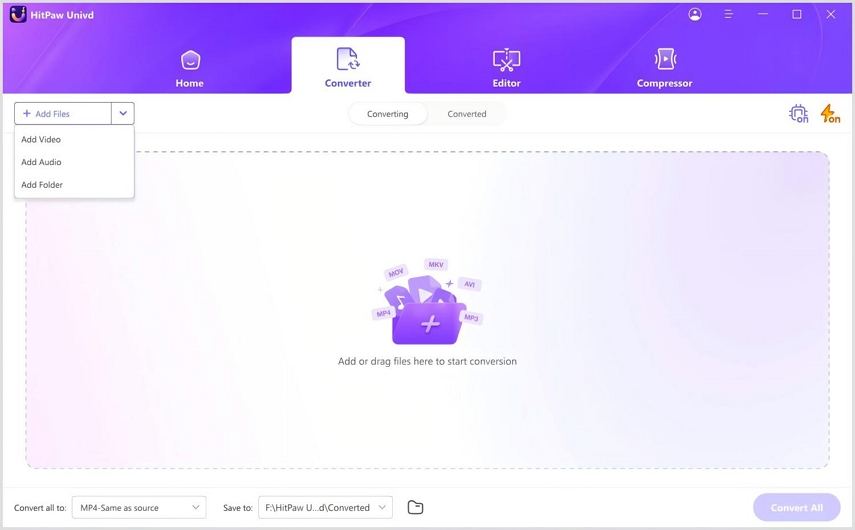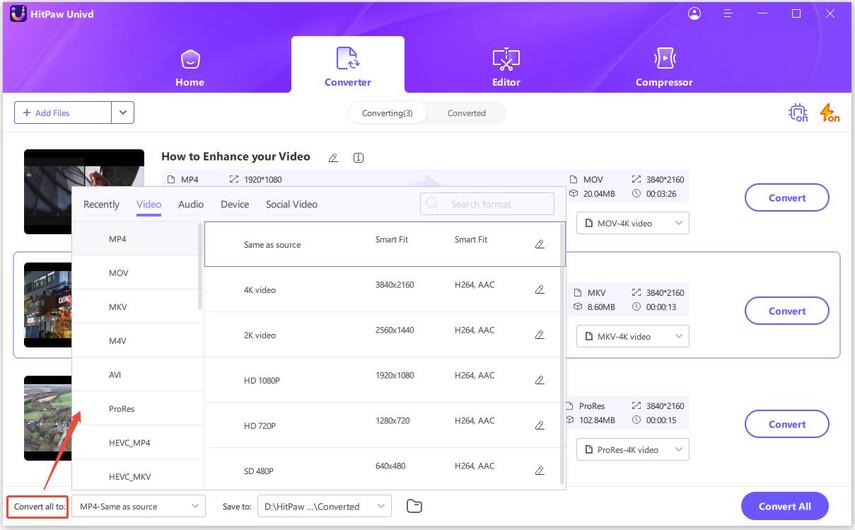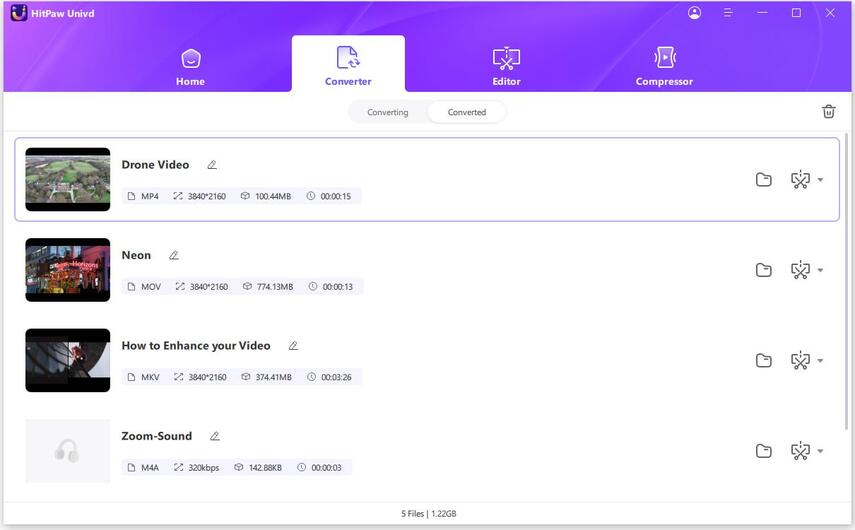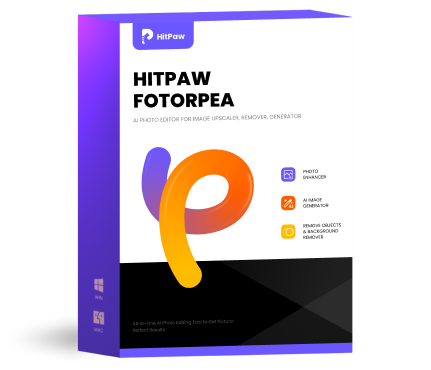Why and How to Fix Can't Import AVCHD MTS to DaVinci Resolve
DaVinci Resolve is a powerful video editing software used by professionals for editing high-quality video content. However, users sometimes face issues when trying to import AVCHD (.mts or .m2ts) files recorded from camcorders, particularly Sony devices. While DaVinci Resolve does support the AVCHD format, many users encounter problems such as no audio or an inability to import the files altogether. This article will explore the reasons behind these issues and provide solutions to help you resolve them quickly.
Part 1: Why Can't You Import AVCHD MTS to DaVinci Resolve?
While DaVinci Resolve officially supports AVCHD files in .mts or .m2ts formats, users often encounter problems due to a range of technical factors. These can prevent the program from recognizing or correctly processing the AVCHD files, especially when importing from a camcorder like Sony or Panasonic.
Here are some possible reasons why you might be unable to import AVCHD files into DaVinci Resolve:
1. DaVinci Resolve Version Compatibility:
Older versions of DaVinci Resolve might not fully support newer AVCHD formats or codecs. Check if you're using the latest version of DaVinci Resolve, as it comes with expanded support for various formats and codecs.
2. Hardware Limitations:
AVCHD files, particularly those in MTS or M2TS formats, require significant processing power due to their high-definition content. If your computer hardware (e.g., CPU, GPU, or RAM) is outdated or not powerful enough, this could cause problems during import.
3. Damaged AVCHD Files:
Corrupted or damaged AVCHD files can prevent DaVinci Resolve from importing them. Ensure that the video files are not broken and play properly in other media players before attempting to import them into DaVinci Resolve.
4. Unsupported Codec or Frame Rate:
DaVinci Resolve may not be able to handle certain codecs or frame rates associated with AVCHD files. For example, if the AVCHD file uses an uncommon codec or an unusually high frame rate, it could cause issues with importing or playback.
5. Incorrect Audio Settings:
AVCHD files sometimes have complex audio tracks, and if DaVinci Resolve doesn't recognize the audio codec, it may result in no sound or partial audio tracks after import.
Part 2: Common Solutions to Fix DaVinci Resolve AVCHD Issues
If you're struggling to import AVCHD (MTS/M2TS) files into DaVinci Resolve, here are some practical solutions to address the problem:
Solution 1: Update DaVinci Resolve to the Latest Version
The first step is to ensure that you're using the latest version of DaVinci Resolve. Newer updates often include bug fixes, improved codec support, and better compatibility with various file formats like AVCHD. Visit the official DaVinci Resolve website to check for updates and install the latest version.
Solution 2: Upgrade Your Computer Hardware
If updating DaVinci Resolve doesn't resolve the issue, it could be due to hardware limitations. Upgrading your computer's processor (CPU), memory (RAM), and graphics card (GPU) may help you import and edit AVCHD files more smoothly, especially when working with high-definition video content.
Solution 3: Use a Newer Computer
Processing large AVCHD files requires a lot of processing power. If your current machine is outdated, try using DaVinci Resolve on a newer computer with a faster processor and better graphics capabilities. This will ensure smoother file importing and more efficient editing.
Final Resort: Convert AVCHD Files to Solve AVCHD DaVinci Resolve Issues
If none of the above solutions work, the most reliable option is to convert your AVCHD (MTS/M2TS) files to a more DaVinci Resolve-friendly format using HitPaw Univd (HitPaw Video Converter). This tool simplifies the process of converting AVCHD files into popular formats like QuickTime MOV, MP4, AVI, and ProRes without sacrificing quality. By converting the files to a supported format, you eliminate compatibility issues and streamline your editing workflow.
HitPaw Univd - All-in-one Video Solutions for Win & Mac
Secure Verified. 254,145 people have downloaded it.
- Convert AVCHD to DaVinci Resolve-Supported MOV, MP4, ProRes, AVI, and more.
- Powerful editing tools like trimming, merging, adding subtitles, and adjusting audio.
- Batch Processing for faster converting multiple AVCHD files at once to save time.
- Maintains original video quality while ensuring 120X faster conversion speeds.
- Convert AVCHD files to optimized presets for various devices like iPhones, Android.
Secure Verified. 254,145 people have downloaded it.
Step 1:Launch HitPaw Univd and click “Add Video” to import your AVCHD files, or simply drag and drop the files directly into the software.

Step 2:Click “Convert all to” in the lower left, then switch to the “Devices” tab to choose an output format compatible with DaVinci Resolve, such as MOV or MP4.

Step 3:After selecting the desired output format, click "Convert" to begin the process. Once the conversion is complete, go to the "Converted" tab to locate the finished files. You can click “Open Folder” to view the files or "Add to Edit" if further video adjustments are needed.

People Also Ask About AVCHD and DaVinci Resolve
Q1. Can DaVinci Resolve edit AVCHD files?
A1. Yes, DaVinci Resolve supports AVCHD files, but compatibility issues may arise due to factors like codecs or hardware limitations.
Q2. Why is there no audio in my AVCHD file in DaVinci Resolve?
A2. This could be due to an unsupported audio codec. Converting the AVCHD file to a different format with a supported codec should resolve the issue.
Q3. What is the best format to convert AVCHD for DaVinci Resolve?
A3. The best formats to convert AVCHD for DaVinci Resolve are MOV, MP4, or ProRes, as these formats are fully supported and optimize performance.
Q4. Can I batch convert AVCHD files for DaVinci Resolve?
A4. Yes, with tools like HitPaw Univd, you can batch convert multiple AVCHD files simultaneously, making the process quicker and more efficient.
Conclusion
If you're unable to import AVCHD (MTS/M2TS) files into DaVinci Resolve, there are multiple possible reasons ranging from outdated software to unsupported codecs. By updating DaVinci Resolve, upgrading your hardware, or converting your files using HitPaw Univd, you can overcome these issues and enjoy a smoother editing experience. Converting AVCHD files to more compatible formats ensures that DaVinci Resolve works optimally with your video content, making it easier to manage and edit AVCHD footage.










 HitPaw VoicePea
HitPaw VoicePea  HitPaw VikPea (Video Enhancer)
HitPaw VikPea (Video Enhancer) HitPaw FotorPea
HitPaw FotorPea

Share this article:
Select the product rating:
Daniel Walker
Editor-in-Chief
My passion lies in bridging the gap between cutting-edge technology and everyday creativity. With years of hands-on experience, I create content that not only informs but inspires our audience to embrace digital tools confidently.
View all ArticlesLeave a Comment
Create your review for HitPaw articles